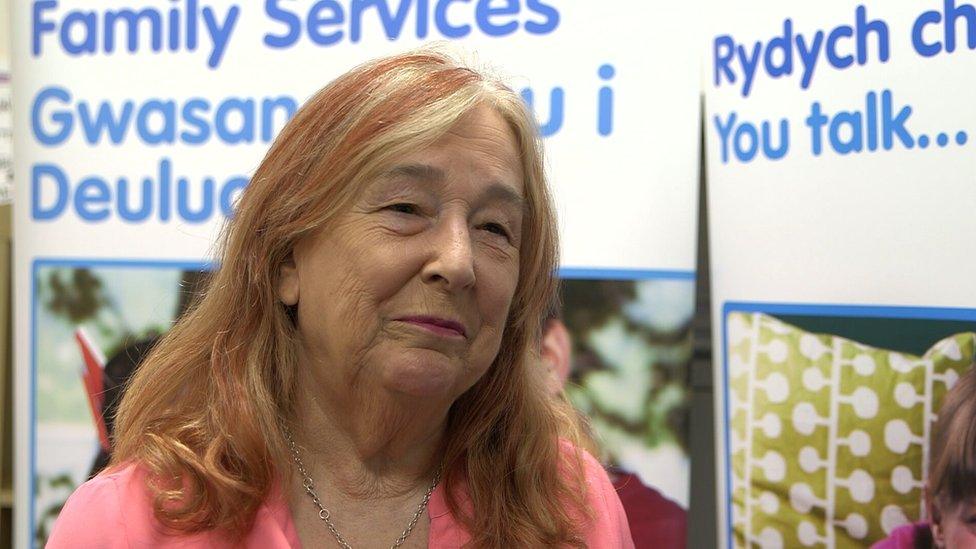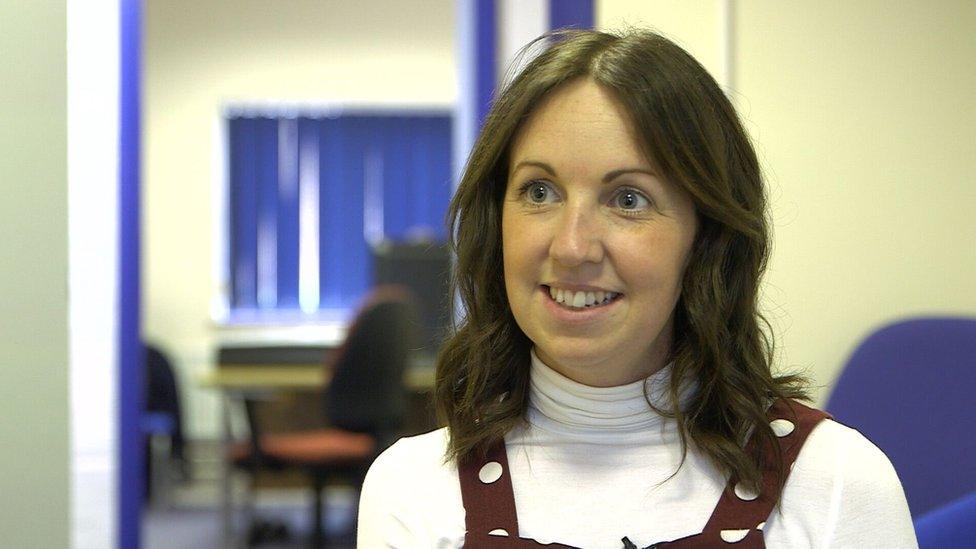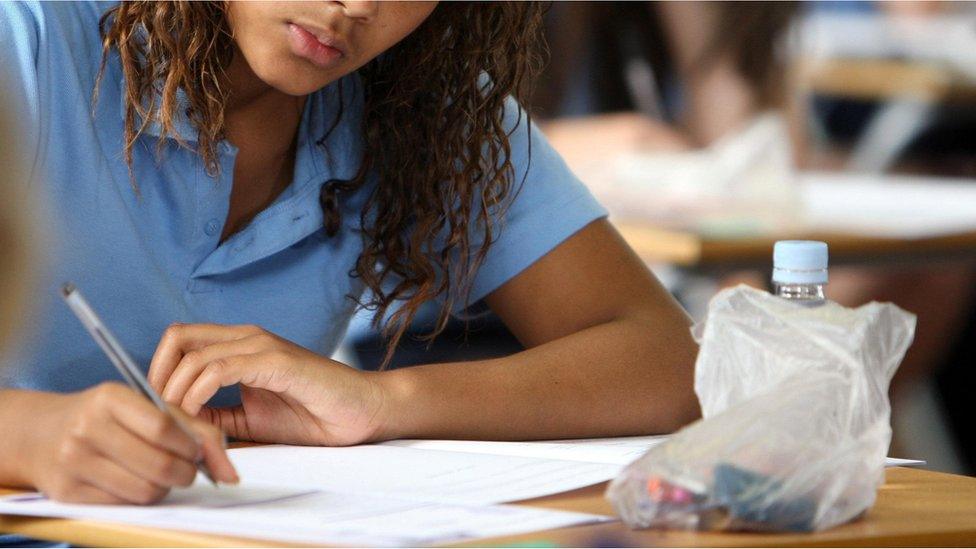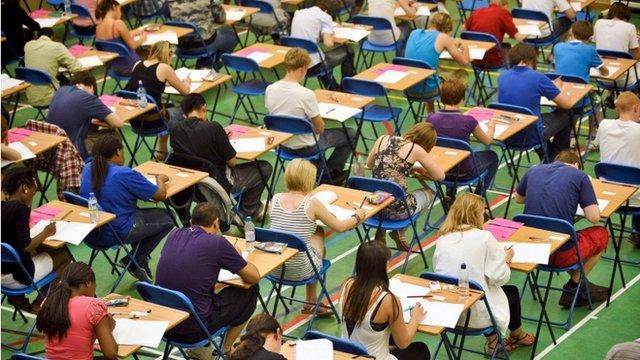Exams: Student with dyspraxia encourages others to ask for extra time
- Published
Olivia did not accept the extra time she was allowed during her GCSEs
A student has spoken of how she refused extra exam time during her GCSEs because she did not want to be seen as different.
Olivia Rogers, 22, has dyspraxia, a developmental co-ordination disorder.
"I just didn't want people asking me, 'why do you get extra time?'...You don't want to be seen to be different," she said.
Since year 13, she has taken advantage of the extra time, and is now studying at Swansea University.
She said that if others want to get help, it is important to ask for it.
Olivia, who is originally from the West Midlands, said there is still a stigma around access arrangements, such as having extra time, or having a reader or scribe.
Explaining her condition, she said: "It basically means that you struggle with your hand-eye co-ordination.
"Sometimes you look a bit awkward when you're walking and daily tasks can be a little more difficult for you."
When she was younger, Olivia says she "really struggled with maths and English" but progressed through school with some extra help.
"I still got fairly good grades in GCSEs, but I found it really stressful to actually finish.
"Maybe if I had had the extra time in year 10 and 11, I would have got better GCSE grades."
In the academic year 2017-2018, 13,540 GCSE, AS and A level students in Wales were given extra time according to Qualifications Wales - nearly 13% of the students who sat exams in that period.
Stigma
Receiving 25% extra time is the most common access arrangement, making up nearly two-thirds of all arrangements approved in the 2017-2018 academic year. Other access arrangements include having a reader or a scribe.
SNAP Cymru, which provides advice for those with special educational needs or disabilities, said it is important to get rid of "the stigma that surrounds any additional support for learners that have some levels of difficulty or additional learning needs".
Despite an increase in awareness of conditions such as dyspraxia and dyslexia, it believes there needs to be more open conversations to eliminate any embarrassment students may feel.

SNAP Cymru's chief executive Denise Inger said the stigma needs to be removed
Denise Inger, the charity's chief executive said she is "sure that schools will always be trying to do their best to encourage pupils".
She continued: "I think Olivia raises an issue really about how young people feel. I think this is about really looking at equality and removing that stigma and having a general discussion.
"We can't assume that everything is all right, we must consider how they feel.
"The equality act clearly tells us to do this and we need to be better at that - removing the stigma from having additional time for examinations."
As well as schools and colleges, universities also offer special exam arrangements for students who have specific learning difficulties or conditions, long term medical conditions or disabilities.
"I would say, or like to hope - that by the time students come through to university, they're possibly a little bit more confident and keen to engage with support," said Jemma Vincent, disability caseworker at Swansea University.

Jemma Vincent, disability caseworker at Swansea University, said there may still be a degree of stigma surrounding special requirements in exams
She agreed that there may still be a degree of stigma surrounding special arrangements for exams.
"I can certainly say that there shouldn't be and we will do everything we can to promote that message," she said.
"It could be the difference of you having enough time to finish an exam, which is really significant in timed assessments, so don't hesitate is my main advice."
The Welsh Joint Education Committee said "we will ensure that any candidate with a disability who requires additional examination time will be given this."
It added that "requests for extra examination time should be made by the candidate's school or college".
Now only a few weeks from her graduation, Olivia Rogers hopes that others who are eligible for access arrangements in school and at university are open and seek help.
"If you're struggling, I would just say - persevere and if you want to get help, ask for it and there's going to be a place at school where you can seek help and they probably will give it to you."
- Published10 February 2017

- Published1 December 2017
